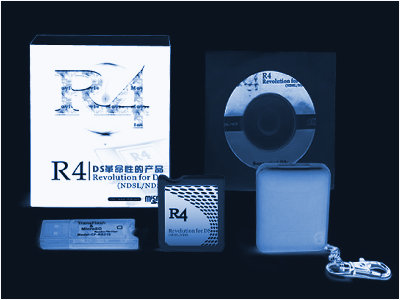Fake 'Samsung 980 PRO SSD' is on the market

It has become clear that counterfeit products of the SSD '
Fake Samsung 980 Pro SSDs Are Spreading Around | Tom's Hardware
https://www.tomshardware.com/news/fake-samsung-980-pro
Although the SSD '980 PRO' compatible with the high-speed communication standard PCIe 4.0 was replaced by its successor ' 990 PRO ' in 2022, it continues to attract market attention as an inexpensive high-speed SSD.
Chinese users who purchased such a 980 PRO report that the item they received was a well-made imitation.
The counterfeit product was packaged in the original package, had the same '980 PRO' sticker as the original product, and had the same serial number and model number as the original product.

However, when you peel off the sticker, you can see some differences from the official product. The official product uses 8nm Elpis with DRAM installed in the controller, but the counterfeit product uses ``Maxio MAP1602A'' manufactured using TSMC's 12nm process.

The NAND is also different; the 980 PRO uses 128-layer TLC 3D V-NAND, while the imitation product uses 128-layer TLC 3D NAND (X2-9060) from the Chinese chip manufacturer YMTC.
The counterfeit product also has genuine firmware built-in, and it was said that it succeeded in deceiving even the SSD management software ``Samsung Magician'' officially distributed by Samsung. However, because the controller and NAND were inferior to the genuine product, there was a large difference in the benchmark results.

The 980 PRO achieves sequential read speeds of up to 7GB/s and sequential writes of up to 5GB/s. On the other hand, the counterfeit product achieved sequential read speeds of approximately 4.8 GB/s and sequential write speeds of approximately 4.5 GB/s in benchmark results.

The user who was given the counterfeit product said that he purchased it for 880 yuan (approximately 17,000 yen) from the Chinese flea market app 'Xianyu'. This price is cheaper than the market; the same product is sold for $169.99 (about 22,000 yen) in the United States, and it is sold for about 24,000 yen on Amazon in Japan, so the price difference alone is I can imagine it being fake.
Buying PC hardware at flea markets is always risky, but buying from well-known platforms like Amazon isn't exactly safe either. It has been pointed out that counterfeit products are often sold on Amazon, and it has been reported that some companies have lost more than 100 million yen due to counterfeit products. When purchasing products on Amazon, it is best to check to see if they are genuine products and choose only those that have ' Amazon.co.jp ' listed as 'shipped by' and 'sold by'.

Related Posts:
in Hardware, , Posted by log1p_kr







